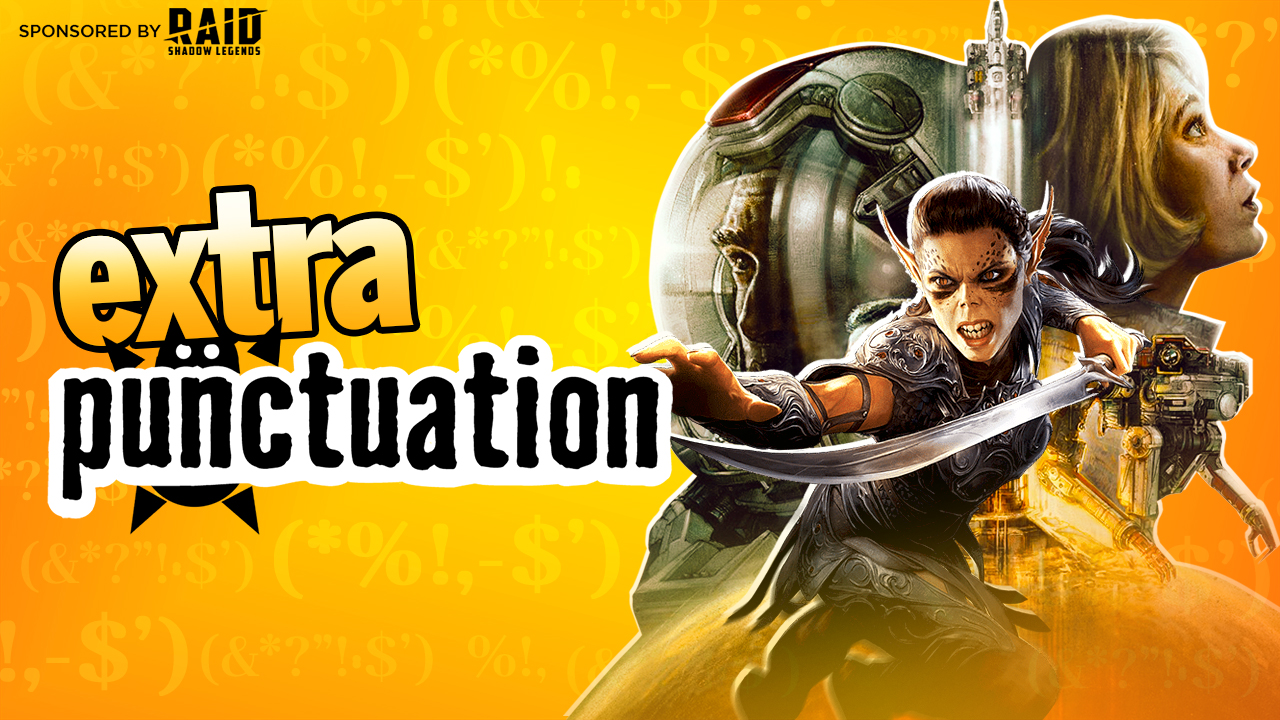This week on Extra Punctuation, Yahtzee wonders where all stealth games have gone to.
Check out more recent episodes of Extra Punctuation on his love for the 2004 Spider-Man 2 game, the dreaded “Walk-and-Talk,” and AAA games needing to step up their traversal.
Extra Punctuation Transcript
I find I’ve been craving a specific dish, lately. Much as I am continually frustrated by the fact that I no longer live within easy walking distance of a McDonalds, there’s a specific flavour of gameplay I used to indulge in a lot and whose absence I now feel like a void in my gut. And that is stealth.
And oh I know what you’re going to say now, Mr. Socky. “Yahtzee, how can you possibly feel you’ve been underserved stealth by the current industry. Isn’t stealth one of the ingredients of the Jiminy Cockthroat model you’re always complaining every triple-A action adventure game has? Open world stealth action games with crafting and collectibles? And plenty of games have stealth sections at least, like in that Chants of Sennaar game you were talking about recently, and those little interlude levels in Marvel’s Spider-Man where you have to play as Mary Jane crouching behind a wall throwing bits of old tin around.”
Well, to take your points in reverse order, I can think of very few examples of mandatory stealth sections in the middle of non-stealth games that don’t suck a great big non-safety regulated tailpipe. Oh, hang on, tell a lie: I can’t think of any at all. Get the hell out of my superhero fantasy game and go risk getting fined for littering somewhere else, Mary Jane.
And as for the other point, the main characteristic of the Jiminy Cockthroat model is that there’s no focus. Every element of it has to have equal placement for maximum broad appeal. So stealth is just an option you can do if you feel inclined, and the moment you mess it up it defaults straight back to the standard combat mechanic. Besides, stealth in this context is always a little bit dreary, I find. Usually it’s the Far Cry 3 thing where there’s an enemy stronghold with five or six dudes walking short regular patrol routes, and we figure out the precise order to take them all out without any of the others noticing, which often feels more like a puzzle akin to untangling a set of Christmas lights.
Whenever I manage to pull it off and neutralize all the guards without an alert, I get this profound sense of anti-climax. All this tension has been building as I creep around unseen, and it doesn’t get a proper payoff. I dump the last body in the tall grass and dust off my hands going, “welp, that’s that.” I can only think of one game where that doesn’t happen, and it’s the game that pioneered the stealth predator mission: Batman: Arkham Asylum. The predator sections don’t get easier the more enemies you take down, no, the remaining ones get more and more scared and trigger happy, they start removing your options, the music gets more dramatic, the situation escalates. That’s how you make it work, and so few games that ape the Arkham predator system realise that. If you don’t raise the tension and enemies just keep obliviously patrolling no matter how many of their pals have disappeared gurgling into the bushes, you don’t feel like a predator, you feel like you’re tidying up.
But anyway. I suppose what I’m missing are games that are entirely built around stealth as the core, intended experience. But as the aforementioned obnoxious forced stealth sections in games demonstrate, stealth is a difficult thing to pull off. I mean, it’s not hard to set up a visibility system and make guards react to nearby sounds and all that, but the sticking point comes when you have to figure out what happens after the player screws it up. A guard spots them, what happens next?
Just game over straight away? That’s what only the suckiest forced stealth sections do. It’s like a combat system where you die in one hit, it’s whacking us around the head for making one tiny mistake. Give the player a chance to run away and hide? Like one of those chase-me-chase-me horror games in the Haunting Ground mould? Better, but that gets frustrating easily. Getting repeatedly spotted and having to keep retreating around the corner to hide in the nearest fridge kinda kills the flow.
Third option: have a combat system, so if you’re spotted you can fight your way out. Which I know feels like surrender. We wanted to avoid this. We went into this wanting to focus on stealth and we’ve ended up having to come up with a combat system anyway. I did say it’s hard to pull off. I think the best compromise is to have combat, but have it kinda suck. Again, the best example of stealth that works is the game that arguably pioneered it, Thief: The Dark Project. You’re supposed to creep around the shadows bopping guards on the head, but there is a direct combat system, in which Garrett waves his sword around like there’s a dog turd on the end and is completely screwed if he ever has to fight off more than one dude at a time.
And Thief makes no bones about not wanting you to fight dudes. If you play on expert level difficulty you flat out fail the mission if you kill anyone. But that intrinsic motivation aside, you don’t want to kill people anyway. You want to feel like a smooth master thief, you want to imagine all the guards waking up the next day to find no valuables and a calling card at which they can only shake their fists in impotent rage. Having to kill any of them feels very un-classy.
I think part of why we don’t see that kind of focused stealth game much anymore is that the notion of deliberately making an aspect of your game suck doesn’t really compute in today’s triple-A production mindset. It’s a hard thing to explain to the design committee. Why are we making combat that sucks? We don’t want our game to suck. Make it suck less. Why are we wasting the publisher’s millions developing a combat system that we flat out don’t want the player to use? Explain this to me, I am very important.
As I said, the Jiminy Cockthroat model is characterised by lack of focus, because it’s terrified of telling the user that they’re playing it wrong. Stealthing, direct combat, showing up to the battle on their hands and knees with a corncob balanced on their left buttock, take whatever approach you want, our aim is to appeal to as many people as possible. But there’s a reason why you don’t buy neapolitan ice cream if you’re in the mood for chocolate. Thief 4 was an execrable pile of seagull plop, for many reasons, one of which was that it no longer had the balls to fail you for killing people. You’d butcher your way through a mansion full of screaming guards and the game goes “Well done for playing the way YOU want to play! Why not buy some of these skill tree upgrades that will make you even better at clumsy murdering?”
Big money game dev also has trouble understanding the benefits of being understated. As we know, it’s all about spectacular graphics and putting the money on screen, and very little of classic Thief’s trademark slowly tip-toeing down lonely darkened corridors would cut together into an interesting trailer. But it was second to none for slow-burn atmosphere building.
The other way Thief 4 ruined things was by following the ghost train ride route of having every encounter be an enclosed stealth challenge, handfuls of guards in tight clusters of rooms who all have short patrol routes going from one end of a corridor to the other. What I loved about Thief 2 was that the levels were huge and persistent and you had to consider the mansion as a whole. Some guards would have patrol routes that go around the entire building, and you’d never know when they might burst in and catch you lifting a candlestick or dumping an unconscious carcass into the spare toilet or whatever- You know, now I’ve sounded it all out, I think I’ve finally realised that I’m not so much hankering for more well-designed stealth games as I am hankering to play through Thief 2 again. So… I guess I’ll go do that. Yes, good idea. Thanks for listening.





